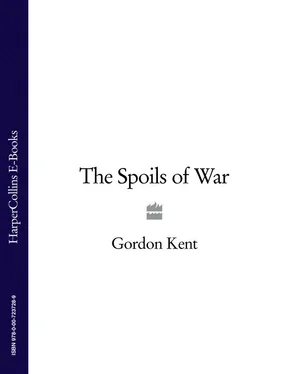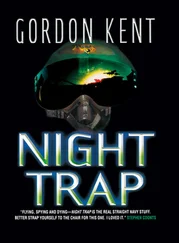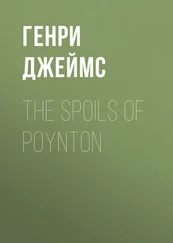Rashid became angrier and angrier. He did not tell Hamal that he had seen a canvas bag full of these things in the car—that would have been betrayal. But he didn’t hide that Saida was a greedy girl who his own mother called a slut and a whore, who was not Muslim but a Christian from Bethlehem, and who always wanted money and good times.
They both listened intently to his anger and his enmity. In the end, he ran down like an old battery, his sentences more disconnected, his gestures subdued, until Colonel Hamal rose to his feet and Zahirah patted his hand.
They took the computer and left.
After the glitter and bustle of Dizengoff Street, Jaffa might have been in another country, another time. It had to some extent cultivated its look—old streets, winding passages, the Camel Market—but it was genuinely old, partly Arab, its back turned on the aggressive newness of central Tel Aviv.
“Over there, the Pal’yam blew up the two British patrol boats,” Miriam Gurion said. She gestured vaguely toward the water. “In 1946,” she said, in case his knowledge of Israeli history wasn’t as good as hers. In fact, he didn’t get it and said so.
She stopped, her head back, eyebrows arched, a pair of unflinching eyes looking into his. “We had to fight the British to get what is ours. We’ve had to fight everybody. Come on.”
They had come in her car, which she had left almost carelessly at an angle near a curb as if she was saying I dare you to ticket me. Now, she led him toward a battered chain-link fence with old razor wire looped along the top. A gate big enough for a small car stood partway along, a concrete guardhouse behind it. The guardhouse wouldn’t have withstood a car bomb, he thought, but what terrorist was going to get media attention by bombing an almost derelict site? It was in fact a moribund Israeli navy barracks, a former British facility that had faded into obsolescence as Israel had matured.
The fence was lined along the bottom with wind-blown plastic bags and papers; weeds grew inside; broken concrete paths connected buildings that looked mostly abandoned, with signs that identified in fading paint military offices that no longer existed. He saw one that said Fourth Royal Marines Enquiries. Others, in less faded paint, were in Hebrew.
The teenaged guard came to attention and looked at their ID and made a call. The site was modern enough for that, at any rate. The result was surprising: a middle-aged officer with a rather menacing, gnome-like face dominated by a hawk’s-beak nose came hurrying around a corner, still adjusting his hat on his head. Alan’s reaction was that the guy was only a lieutenant and much too old for a lieutenant, and his menace was all bluff.
“Mosher,” Miriam Gurion said quietly to Alan. “A shlemiel .” She went toward Mosher as if she was going to beat the life out of him, and he actually stopped, and the look on his face went from menace to guilt to fear in one pass. He said something, and she rapped out a burst of Hebrew that caused him to flinch. He tried to recover, said something that sounded like pleading, and she erupted into more scolding Hebrew.
She grabbed Alan’s arm. “Come on.” She began to march him away from the gate. Lieutenant Mosher watched them and fell in behind, uttering more pleading noises.
Alan glanced at his watch, saw that he was going to be late meeting Rose. “Where are we going?” he said.
“To look at a body.” She snorted. “I said to him, ‘Mosher, where’s the body?’ I thought he was going to piss himself. I said, ‘It’s right where the other one was, isn’t it, Mosher.’ I thought he was going to cry.” She shook her head. “A nice man, actually, but a shlemiel. ”
They were striding along the building that had once belonged to the Fourth Marines. The windows were mostly dark, but he saw fluorescent lights burning in one secondfloor room—Mosher’s office, or some negligible naval function that had been banished here? A door was open at ground level; as he looked, a man stepped into it, heavy-set, ridiculous in long, baggy shorts. He might have been some idler in a small town, curious about outsiders. Alan nodded but the man didn’t respond. Maybe the sun was in his eyes.
What had once been a parade or exercise ground opened to their right, its gravel partly consumed by grass, and beyond it three identical buildings that would have been barracks. Their windows were boarded over now.
Alan wondered what Lieutenant Mosher had done to get such duty. He was well over age for a lieutenant, he thought. They walked up a slope and then down the other side. “Here,” she said. She was pointing at a low mound perhaps ten feet high and forty feet long, at the end nearer them a trench that seemed to cut it into two unequal parts.
Ammunition storage, Alan thought. And that was what Mosher, suddenly speaking in English, was explaining. The British and then the Israelis had used it as an ammunition bunker; then it was judged to be obsolete and it had been used for other things—at one point, the base canteen—and it had served until the Gulf War as a repository for hazardous waste.
“Then Saddam started throwing Scuds and they were ordered to have a bunker, so that’s when they put in the air conditioner.” He was talking to Alan. “But it’s empty now. Unused. Empty!”
Alan wondered why he could hear an air conditioner running.
The beginning of the trench was a flight of concrete steps down to the ex-ammo dump’s steel door. Above it, a windowsized air conditioner wheezed away. She said something in Hebrew, and Mosher worked at the door with a big ring of keys.
Alan smelled death as soon as the door rasped open. Apparently Mosher did, too; he said, “Air-conditioning is not adequate.” He was sweating and swallowing a lot.
The interior was cracked, unpainted concrete. It curved overhead to a height of ten feet, darkening where it sloped down to meet the floor at the sides. A line of five electric bulbs in wire cages ran along the center of the ceiling, connected by old-fashioned BX cable. Desks stood in the shadows, their chairs stacked on them along with big typewriters and wire baskets and solid shapes that might have been books. The air conditioner whined. The air smelled of damp and mold and death.
Miriam Gurion led them to the far end. An old tarpaulin, stiff as a tarred sail, was mounded up there. “I never saw this in my life,” Mosher said. He pulled the tarpaulin, which was heavy and unwilling; Alan grabbed it and helped him lift and fold it back and then pull it completely clear to reveal the dead man.
“I got your list.”
Dukas looked up from his paperwork. Triffler was standing in front of the desk, his coming into the office unnoticed, his words meaningless. Dukas frowned. “List?” he said.
“The bunch in DoD. Information Analysis?”
“Oh, yeah, yeah—” Dukas came back from the Land of Paperwork. “That was quick.”
“The black DC network. We use drums.” “You know, it doesn’t help for you to keep saying how black you are. In fact, you’re about as black as my Aunt Olympia.”
“We keep saying it so you guys won’t.” Triffler was hitting keys on Dukas’s computer. “I networked this, but I figure you don’t know how to access it, which is why I came here in my very own person.”
“I like stuff on paper.”
“We know you do, Mike. We all laugh about it all the time.” He punched a last key, his long, thin body curved into a bow because he was standing, and a list of names came up on the screen. “Ecco, as they say over here—the roster of OIA.”
Muttering that Triffler did good work and he thought he’d keep him around, Dukas swung his chair to face the screen and started scrolling down. There were only forty names, and he didn’t have to read all of them.
Читать дальше












